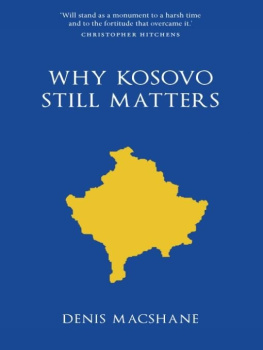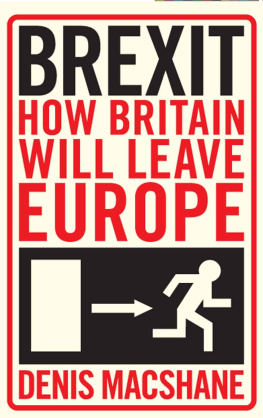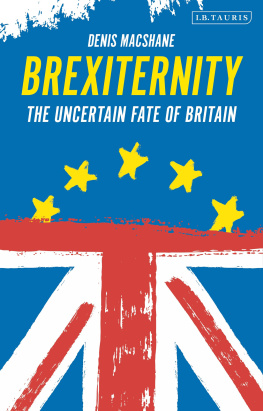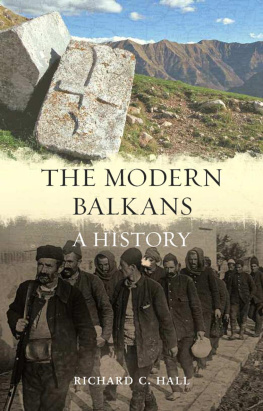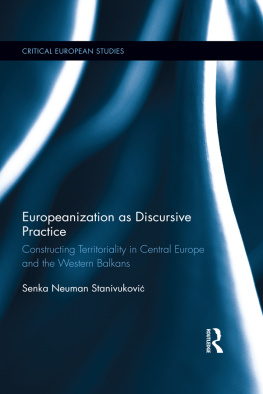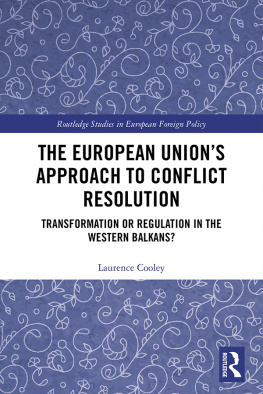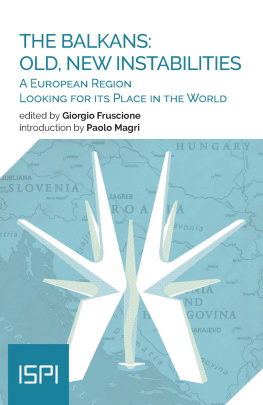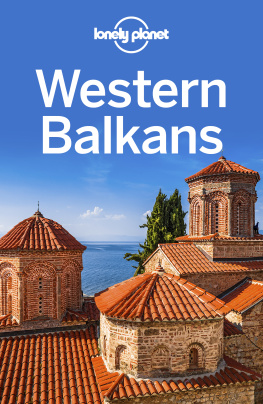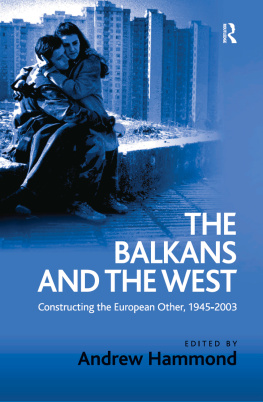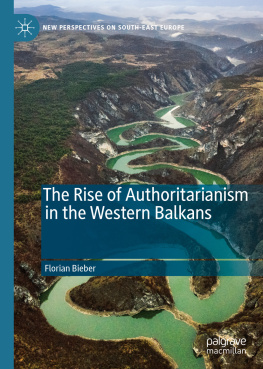Table of Contents
The people of Kosovo both the cleansed Albanians and the demagogically exploited Serbs now know who their political and humanitarian friends were. One of the most outstanding European and parliamentary advocates has been Dr Denis MacShane. This will surprise none who know of his record on human rights. The book will stand as a monument to a harsh time and to the fortitude that overcame it.
Christopher Hitchens
Denis MacShane knows the Balkans well, and his book is full of insights on the region. He reminds us why the Balkans matter and why the EU must not stint in its efforts to encourage reconciliation between Serbs and Kosovars.
Charles Grant Centre for European Reform
In this passionate advocacy for full recognition of Kosovo, MacShane does history of the present like nobody else. He has lived it and contributed to making it, and recounts it with his famous mix of laser sharp analysis, historical scholarship, eloquent advocacy and wry humour which has earned him many friends in the region and in the rest of Europe. A must-read on the fascinating and tragic story of southeast Europe and for all those in Belgrade who understand that true reconciliation between Serbia and Kosovo remains the key to unlocking Serbias European future.
Kalypso Nicoladis, Professor of International Relations, University of Oxford
Denis MacShane is the best-known Europe Minister Britain has had but, more than that, he is a creative and provocative thinker. This book is a lively and readable study of the Serbia-Kosovo imbroglio, which will be of interest to experts and lay-readers alike.
Mark Leonard, Director, European Council for Foreign Relations
Kosovo needs true friends, like Denis MacShane. Passion powers his pen; and this succinct account of past traumas and present choices is enlivened by a sympathetic understanding drawn from first hand experience, as minister, emissary and friend.
Lord Kerr of Kinlochard, Permanent Under Secretary, Foreign and Commonwealth Office, Head of Diplomatic Service 1997 2002
The agony of Kosovo could not be balanced by the joy that was to be derived from it the agony of Kosovo must have been purely itself, pain upon pain, newly born in acuteness for each generation, throughout five centuries.
Rebecca West, Black Lamb and Grey Falcon
Foreword
I had little idea when more than forty years ago I first travelled through the Balkans that this region would become part of my political life. There are too many friends with whom I have discussed the region to list here. As a Foreign Office minister I have been privileged to meet many of the leaders of nations and communities in the region. My friend Alex Rondos, Ambassador Extraordinary in Greece, has been a constant inspiration. I wonder what happened to the 10-point peace plan for the Balkans we drew up at his hillside house in Hydra in 2005.
Senior officials at the Foreign and Commonwealth Office were wise and travelling with them as we waited in the airports of Europe to get to Pristina, Belgrade, Zagreb, Skopje and Sarajevo allowed time for intense discussion with some of the most knowledgeable experts and public servants Britain has. Her Majestys Ambassadors in the Balkans were always friendly and helpful. It was an all-male tribe when I first went there as a minister. It is good to see women diplomats now being properly promoted.
I dont think there is any political difference on what needs to be done in the Balkans and I wish Foreign Secretary William Hague and his team well. I hope that my friend, Kathy Ashton, the EUs High Representative for Foreign Policy and her chief Balkans adviser, the learned British diplomat, Robert Cooper, all good luck as they seek to achieve what escaped me and British ministers in the first decade of the 21st century, namely a final lasting peace in the Balkans.
Misha Glenny is one of our great writers on Balkans politics and history. I first accompanied Misha in his petrol-stinking Audi, on a foray somewhere in the region when it was necessary to fill up his car. The supply of fuel was so unreliable at the time that we had to transport large containers. We bumped around in what seemed to be a mobile bomb.
Over many years, conversations with numerous journalists, notably the Guardians Ian Traynor, and Daniel Korski of the European Council of Foreign Relations, have provided invaluable insights. London has the worlds best foreign policy institutions and I have had the privilege of serving for a number of years on the Council of the Royal Institute of International Affairs. Its Chatham House meetings are worth more than the subscription as are the excellent International Affairs and World Today.
I lived and worked in Switzerland, France and Germany before becoming an MP so reading their newspapers has been useful in taking perspectives beyond the Anglosphere press.
I am grateful to the House of Commons Library for the efficiency of the staff in producing books and reports on demand. I cannot begin to list the politicians, activists, academics, writers and witnesses I have discussed Kosovo with in innumerable seminars and conferences, especially fellow delegates on the Council of Europe.
I have served as a UK delegate to the parliamentary assemblies of the Council of Europe and NATO. Both have produced reports and discussed Kosovo. At the former I listened to thoughtful Serb laments and protests, as well as more boilerplate interventions by Russian delegates. Even if I disagree, listening to the other point of view has been useful.
My friend Avdul Gula has been a tireless advocate of Kosovo and has both travelled there with me and subsequently kept me in touch with what is happening in his country while building a family and business in London. Lea Renoux and Muriel Kahane helped with preparing the text. Barbara Schwepcke is a wonderful publisher.
I would like to dedicate this book to a friend who for more than forty years has made me think and laugh about international politics more than anyone else. Christopher Hitchens is beyond price as a comrade, companion and co-conspirator in the pursuit of freedom and fairness.
Denis MacShane, London, Pristina, Rotherham, July 2011
Mil-Who? Kos-Where?
The scene is a gathering of the worlds powerful union leaders in Montreal in June 1988. Speaking to them was an important European political figure. Now forgotten except to students of the history of Germanys Social Democratic Party, Peter Glotz was then the partys general secretary. He was a Bavarian intellectual, a close friend of Willy Brandt and Helmut Schmidt. He had been one of the brains behind the revival of West German social democracy. Like all German political intellectuals he spoke good English and had travelled across the Atlantic to talk to what he thought was an important gathering.
The world seemed firmly under the control of conservatives like Ronald Reagan, Margaret Thatcher and Helmut Kohl. As he switched from criticizing their economic and social policies Glotzs voice rose in passion. I believe we are seeing in Europe today the rise of a new fascism, a terrible, horrible nationalism that will plunge Europe back into the dark ages of conflict and war. In Kosovo the Serb leader, Slobodan Miloevi has made a speech, the likes of which I thought would never be heard again in Europe. Unless he is stopped there will be a terrible conflict in the Balkans.
The sleepy trade union leaders from Europe, America, Canada, Japan, South Africa, Korea, India and overseas representatives of the banned Solidarity trade union movement in Poland just let the words roll over them. I prided myself on some knowledge of the politics of Europe. But I had no idea what Peter Glotz was talking about. Mil who? Kos where? Who was this man Glotz said threatened the peace of the world? Where was this place he was talking about?

